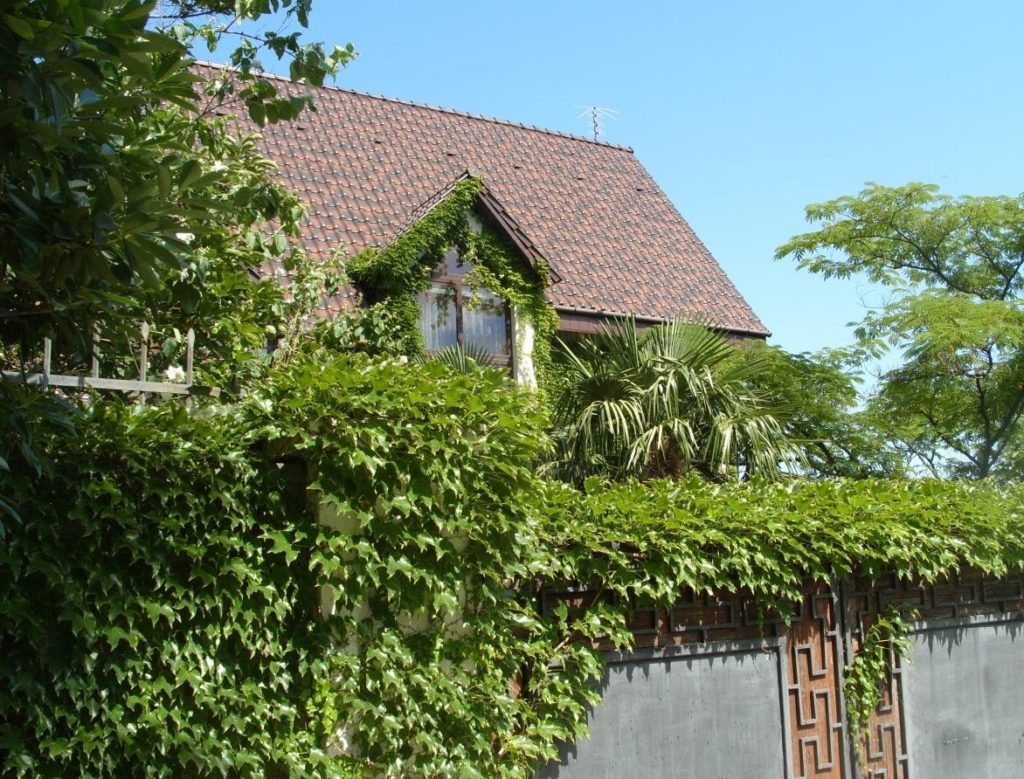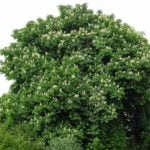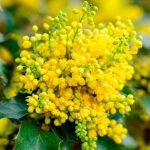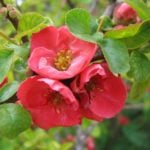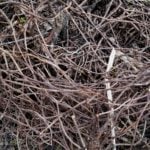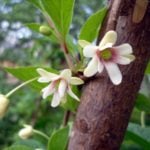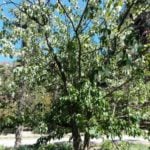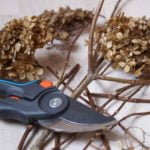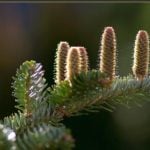Green plants on the walls of houses have a positive effect on the microclimate of the house, trapping dust, exhaust gases; some of them have phytoncidal properties (wisteria). Lianas also prevent the penetration of noise into the house; thanks to the shading of the foliage of balconies, loggias and window openings, the temperature inside the house is reduced by 2-3 °C (35.6-37.4°F); at the same time, the vines occupy a minimum of the soil surface.

For impressive lianas (parthenocissus and its forms), tendril pads, suckers and dogwood lianas (ivy, campsis), the walls of the houses serve as strong and durable holders

For these vines, there is no need to strengthen the walls with a special grid, pull twine, wire, etc. They are better attached to the rough surface of brick, natural stone or limestone.

For example, parthenocissus tricuspidata is often used for landscaping the southern, eastern and western facades of houses.
This is a powerful deciduous liana with a height of up to 20 m (21.9 yard). Short, branched antennae with suckers. The leaves are very picturesque: on young branches small, round, pink in summer, golden in autumn; on old branches – large, three-lobed, green in summer, red in autumn.

Decorative forms: ‘Veitchii’ (autumn leaves dark red-purple) ‘ ‘BeverleyBrook’ (leaves light purple, autumn, red) ‘ ‘ Lowii’ (leaves small, deep three – seven-lobed).
